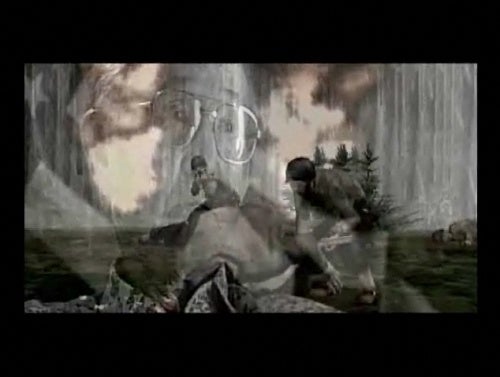
Still from The Rescue of the Lost Battalion
Scholars, performers, and technologists give voice to stories at the intersection of the personal and the historical from March 26-29.
The creators of a machinima history of Japanese-American WWII veterans will join a large cast of innovative oral historians in Los Angeles starting on March 27, for the first panel discussion at the New Destinations in Oral History conference in USC’s Doheny Memorial Library.
Machinima refers to animations built with readily available videogame tools. Randall Fujimoto and Joseph Kamiya of the Go for Broke National Education Center will present their video, The Rescue of the Lost Battalion, and will describe their method of combining animation and the veterans’ words into a historical narrative.
The conference, sponsored by the Southwest Oral History Association, also will feature an introduction to oral history practices and a workshop that will explore digital concepts in oral history and compare types of digital audio recorders. Second-day panels will cover Latino voices in oral histories, military stories and many other topics of broad local and regional interest.
SOHA organizers cited the city’s status as a regional, national and international nexus of culture and media as one of many reasons for bringing the event to Los Angeles and USC. In addition to oral history practitioners, the multidisciplinary, multi-format program includes performing artists, filmmakers, scholars and students.
"The interdisciplinary and technological aspects of the conference make USC a particularly fitting host for this year's gathering," said Claude Zachary, university archivist and member of the conference program committee.
“Our groundbreaking work with new media, the creation and preservation of personal and institutional stories, our commitment to the communities within and surrounding our campuses—these concerns inform so much of what so many of us do every day in the libraries and across USC.”
Indeed, said Sarah Moorhead, president of SOHA, especially in times of uncertainty or peril, oral history emerges as a way of preserving and presenting complex manifestations of crisis in the lives of individuals.
“Statistics don’t capture the entirety of an event like September 11th or the aftermath of Hurricane Katrina,” Moorhead said, “just as unemployment figures and the Dow Jones average don’t reveal the whole truth of the current ‘great recession.’ The personal experiences, the struggles and successes—oral histories document those with an intimacy and urgency that otherwise would be lost.”
In addition to workshops and panels, the conference program offers tours of the USC Shoah Foundation Institute for Visual History and Education and the museums in Exposition Park. The conference is organizing a walking tour of nearby Leimert Park and a documentary film screening on March 26. Juan Devis, creator of KCET Web Stories, will deliver the Saturday-morning keynote. The full program is available online.
Several local and regional institutions collaborated to sponsor this year’s conference, including Arcadia Publishing, the California African American Museum, the Historical Society of Long Beach, the UCLA Center for Oral History Research, the UCLA Chicano Studies Research Center, and the USC Libraries.